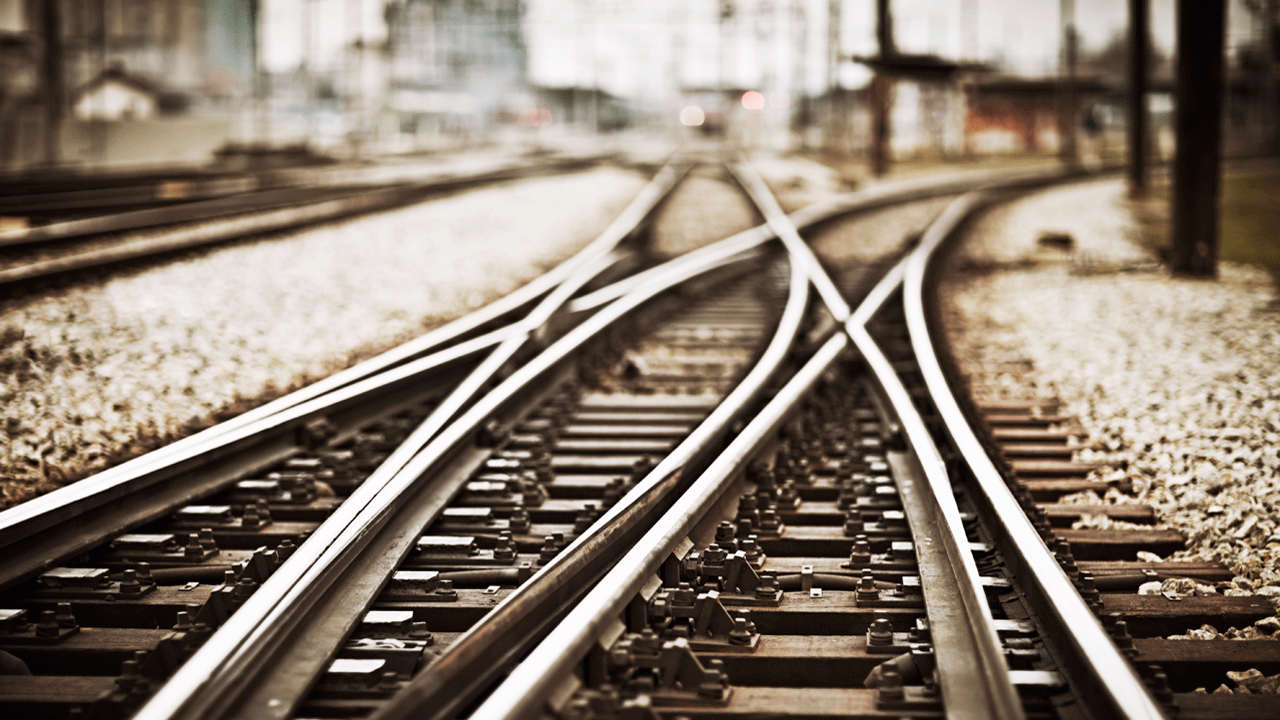
IRIR Projects Stymied by Shortage of Rails

 The IRIR needs an average of 300,000-400,000 tons of rail per year to meet the needs of the key transport sector.
The IRIR needs an average of 300,000-400,000 tons of rail per year to meet the needs of the key transport sector.
Esfahan Steel Company’s delay in delivering rail to the Islamic Republic of Iran Railways amid restrictions on rail imports has created a shortage in the market.
“There is not enough rail to meet the growing needs of our railroad projects,” ILNA quoted IRIR President Mohsen Pourseyyed Aqaei as saying.
The Ministry of Industries, Mining and Trade; Ministry of Roads and Urban Development; and ECSO teamed up two years ago to promote the so-called “National Rail Project” in a bid to reduce reliance on imported rails.
The project, however, was delayed due to recession in the domestic steel market, ESCO’s lack of liquidity and IRIR’s refusal to pre-purchase the steel tracks.
Initial plans to produce domestic rail go back 10 years when the former government thwarted a deal to import 100,000 tons of rail from Spain, arguing that imports should be curbed so that demand is met via domestic manufactures.
“We cannot ban purchase of foreign rail and rely solely on domestic production. Nor should we rely heavily on imports as it will strangle domestic potential,” said Aqaei, who is also deputy minister of roads and urban development. He noted that “to support domestic production we have agreed to purchase locally made rails with prices higher than those offered by European companies.”
Iran’s next economic development plan (2016-21) stresses, among other things, the need to develop the rail transport network.
Tehran has signed several agreements with international companies to start new railroad projects and also expand and upgrade the existing routes.
Construction of a high-speed train between Tehran and Isfahan, as well as the ongoing rail project to connect the cities of Rasht and Astara as part of the International North-South Corridor, are among these projects.
According to the Minister of Roads and Urban Development Abbas Akhoundi, Iran needs to build 1,500 kilometers of railroads for which it needs 1.8 million tons of rails.
Moving 65m Passengers
The IRIR earlier said Iran needs an average of 300,000-400,000 tons of rail per year to meet the needs of this key transport sector.
The 20-Year National Vision Plan (2005-25) stipulates that the number of passengers using rail transport will increase from the current 25 million to 65 million per year.
Earlier this month, Indian steel and energy company Jindal Steel and Power Limited said it was going to ship head hardened rails – a specialty finished steel product – to Iran. The unique product which has applications in tracks for metro rails and high-speed bullet trains is manufactured by the company at its Raigarh steel mill.
“JSPL is producing the world’s longest rail at its Raigarh factory. We have bagged an order from Iran to supply 1.5 million tons of head hardened rails over a period of one and a half years.
The first consignment will be loaded shortly,” a senior company executive was quoted by Indian English-language daily newspaper Business Standard as saying. The rails to be exported to Iran are of 18-m length.
Export of rails by Indian steel companies to Iran is seen as part of the pact between the two countries to develop railroads and other infrastructure at the strategic Chabahar Port in the south of Iran.
New Delhi-based engineering and construction company IRCON International Limited is also building a rail line at Chabahar to move goods to Afghanistan.


Trump weighs using $2 billion in CHIPS Act funding for critical minerals

Codelco cuts 2025 copper forecast after El Teniente mine collapse

Electra converts debt, launches $30M raise to jumpstart stalled cobalt refinery

Barrick’s Reko Diq in line for $410M ADB backing

Abcourt readies Sleeping Giant mill to pour first gold since 2014

Nevada army depot to serve as base for first US strategic minerals stockpile

SQM boosts lithium supply plans as prices flick higher

Viridis unveils 200Mt initial reserve for Brazil rare earth project

Tailings could meet much of US critical mineral demand – study

Kyrgyzstan kicks off underground gold mining at Kumtor

Kyrgyzstan kicks off underground gold mining at Kumtor

KoBold Metals granted lithium exploration rights in Congo

Freeport Indonesia to wrap up Gresik plant repairs by early September

Energy Fuels soars on Vulcan Elements partnership

Northern Dynasty sticks to proposal in battle to lift Pebble mine veto

Giustra-backed mining firm teams up with informal miners in Colombia

Critical Metals signs agreement to supply rare earth to US government-funded facility

China extends rare earth controls to imported material

Galan Lithium proceeds with $13M financing for Argentina project

Kyrgyzstan kicks off underground gold mining at Kumtor

Freeport Indonesia to wrap up Gresik plant repairs by early September

Energy Fuels soars on Vulcan Elements partnership

Northern Dynasty sticks to proposal in battle to lift Pebble mine veto

Giustra-backed mining firm teams up with informal miners in Colombia

Critical Metals signs agreement to supply rare earth to US government-funded facility

China extends rare earth controls to imported material

Galan Lithium proceeds with $13M financing for Argentina project

Silver price touches $39 as market weighs rate cut outlook

















